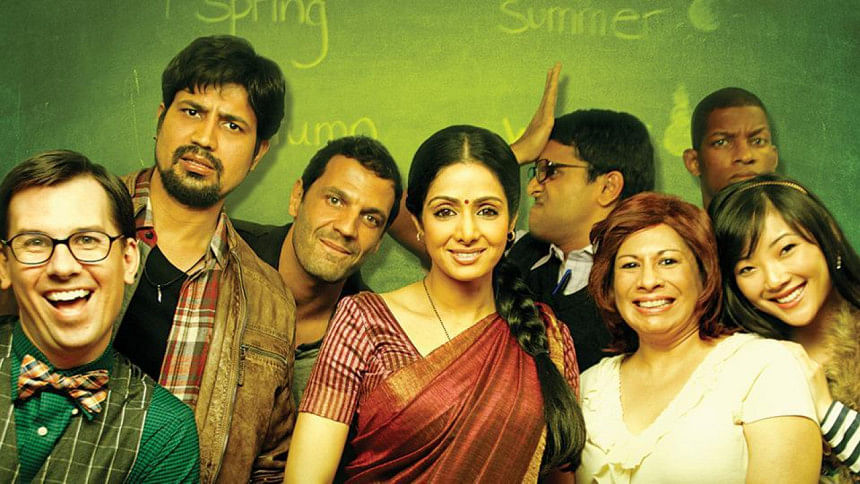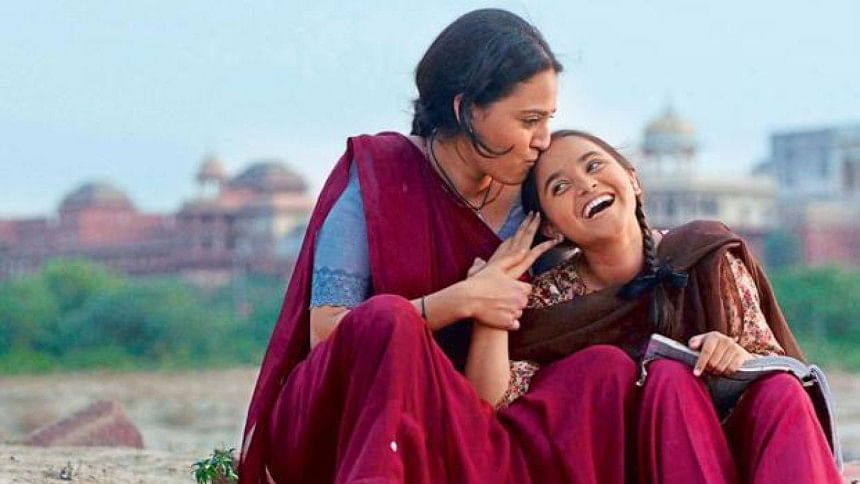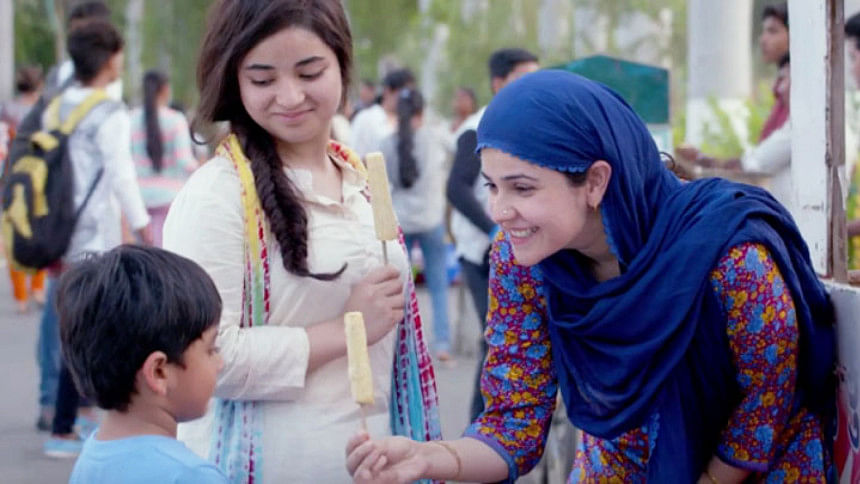Revisiting the most unforgettable moms of Bollywood

Mothers on screen are often reduced to clichés — the sacrificial, saintly figure or the melodramatic martyr. Then again, Bollywood notably holds a growing archive of stories where mothers are full-bodied characters: flawed, funny, brave, and deeply human. These women love fiercely, fight quietly, and exist beyond the frame of just being someone's parent. From fighting governments to challenging their children, they show that real motherhood is messy, resilient, and worth watching not just for sentiment, but for substance.
So, here is a celebration of the wholesome, memorable, and emotionally rooted portrayals of mothers on screen; the ones who did not just raise their children, but raised the bar for what motherhood could look like in cinema:
'English Vinglish'

Sridevi's comeback role as Shashi Godbole in "English Vinglish", since returning to a film after being notably absent for years, was not just a stellar performance but a homecoming. A quiet homemaker mocked by her husband and daughter for her lack of English skills, Shashi enrols in a language course during a trip to New York. What follows is a beautiful unravelling and reclaiming of self-worth. The brilliance of Shashi's character lies in her everyday dignity, how she navigates condescension, loneliness, and casual dismissal with poise. She does not rebel loudly; she just becomes herself over the course of her journey. It is not about learning English but about reminding her family, and herself, that she was never incomplete to begin with. "English Vinglish" is undoubtedly one of Bollywood's gentlest tributes to a mother rediscovering her voice, while making the world pause to listen.
'Mrs Chatterjee vs Norway'

Based on real events, this film is a masterclass in maternal fury and unbreakable love. Rani Mukerji's Debika is not polished or palatable, and that is exactly why her performance hits so hard. When her children are taken away by Norwegian authorities over cultural differences, she takes on the entire legal system to get them back. There are scenes where she sobs with abandon, protests with primal desperation; a reminder that motherhood is not about decorum but raw instinct. While critics debated the film's melodrama, audiences embraced the truth at its core: no government, courtroom, or clipboard can quantify a mother's love. Debika is not a caricature of sacrifice; she is a woman who refuses to be told she is unfit to love her children.
'The Sky Is Pink'

Based on the real-life story of Aisha Chaudhary, this film is an emotional rollercoaster, but it is Priyanka Chopra's portrayal of Aditi, the mother, that anchors it with gravity and grace. Aditi is not your typical grieving mother. She is fierce, funny, determined, and organised to the point that it becomes her obsession. She is the kind of woman who will fight with airlines, doctors, and destiny if that is what her daughter needs. What makes Aditi's character stand out is that she is never portrayed as invincible. She breaks, she rages, she even disappears for a bit, but she always comes back stronger. The film does not glorify but humanises her. And in doing so, it reminds us that sometimes, strength comes at a cost greater than we know.
'Nil Battey Sannata'

Swara Bhasker's Chanda plays a domestic worker with big dreams, not for herself, but for her disinterested teenage daughter. When her daughter refuses to study, convinced that poverty has already decided her future, Chanda takes the radical step of joining her school to show the possibilities. This film is about the silent rebellion of mothers who refuse to pass down limitations as a legacy. Chanda's character is all about grit wrapped in affection. She nags, hustles, and occasionally embarrasses her daughter, but never stops pushing her to aim higher. What makes her memorable is not the scale of her struggles but the enormity of her belief. She is the mom who teaches by doing, loves by challenging, and parents by dreaming, for the two of them.
'Mimi'

Kriti Sanon plays Mimi, a young woman who agrees to become a surrogate for an American couple, but ends up raising the child herself when they abandon her midway. What could have easily become a melodrama turns into an endearing tale of unexpected motherhood. Mimi is impulsive, funny, and immature, and that is what makes her growth arc so satisfying. She does not become a mother when she gives birth — she becomes one through every sleepless night, every instance of fierce protection, and every goofy bedtime moment. The film tenderly flips the idea that maternal love needs to be biological or planned. Sometimes it arrives unexpectedly and remains firmly. In a rare win for Hindi cinema, Mimi is not villainised for wanting to be both a mom and a performer.
'Secret Superstar'

Meher Vij as Najma is a revelation in this film. A soft-spoken housewife trapped in an abusive marriage, she is the secret force behind her daughter Insiya's dreams of becoming a singer. Insiya may be the protagonist, but Najma is the quiet revolution. She sells her jewellery, hides secrets, and encourages rebellion, all while bearing her husband's wrath without breaking her daughter's spirit. It is one of the most nuanced portrayals of mothers as enablers of freedom in deeply patriarchal homes. Najma is not fearless, but her love makes her brave. She does not push her daughter toward survival; she pushes her to fly high. When she finally finds her voice, it echoes for every silenced mother who once dared to dream.
'Mom'

In one of Sridevi's final roles, she plays Devki, a stepmother whose relationship with her stepdaughter is strained until tragedy strikes. What follows is less of a revenge thriller and more of a maternal rampage soaked in moral greys. Sridevi walks the tightrope between legal justice and emotional closure with chilling precision. Her performance is raw, wounded, and never sentimental. It is about a mother who becomes a vigilante because she knows no one else will show up. The film complicates the idea of motherhood, suggesting that while love may not always be unconditional, loyalty certainly is.

 For all latest news, follow The Daily Star's Google News channel.
For all latest news, follow The Daily Star's Google News channel. 








Comments